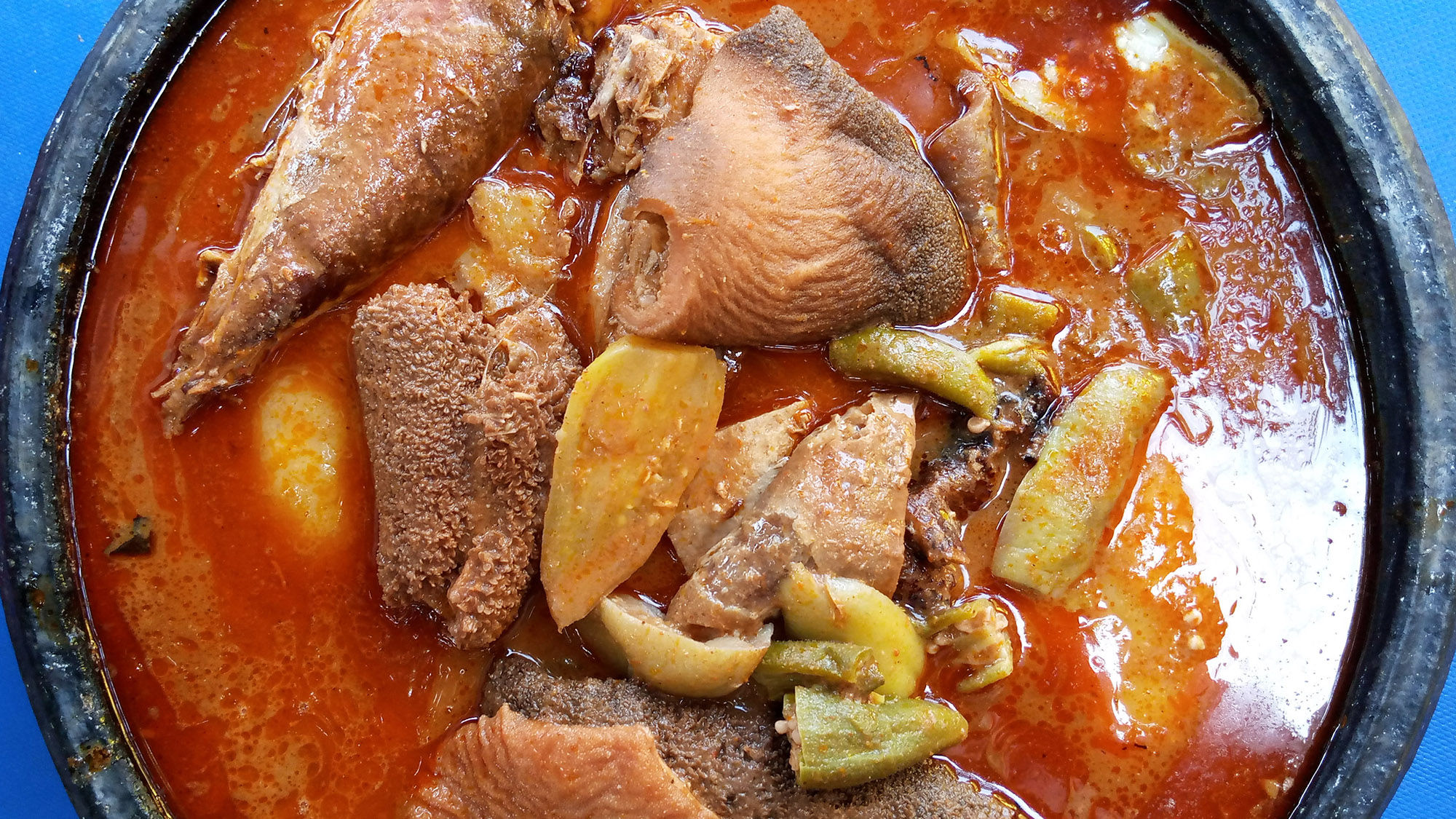Appetite is growing for culinary tourism in Ghana
Recognized as the homecoming hub for the African diaspora, Ghana is now slowly emerging as a promising culinary destination. From its welcoming cultural heritage to its beautiful nature and incredible food diversity, Ghana is steadily broadening its narrative in global tourism.
Situated on West Africa’s Gulf of Guinea, Ghana is home to diverse ethnic groups, each with their unique food culture. Ghanaian cuisine is as varied as the nation’s cultural heritage, from the hearty waakye (a rice and beans dish) popular in greater Accra to the fufu (a smooth, doughy item made from boiled starchy root vegetables, such as yams) and ampesi (a concoction of boiled yam, plantains and sometimes cocoyam) of the Ashantis.
As Lydia Kekeli Amenyaglo of the Ghana Food Movement pointed out, “Food in Ghana goes beyond mere sustenance; it’s a canvas of our history, cultural diversity, creativity and hospitality. Each meal echoes traditions and customs passed down through generations.”
‘Food safaris’
Amenyaglo said she has definitely seen an increase in interest for culinary tours from international travelers, particularly from the U.S., U.K., Jamaica, the Netherlands and Germany. The Ghana Food Movement even started offering “food safaris.”
Food safaris offer a deep dive into Ghanaian food culture. In collaboration with Jolinaiko Eco Tours, the Ghana Food Movement takes travelers on trips to discover the roots of the ingredients and the origin of Ghanaian food. The tours visit farms to meet farmers and culinary entrepreneurs and enjoy food prepared by some of the best chefs.
According to Amenyaglo, the appeal of Ghanaian cuisine lies in its ability to transform everyday ingredients into delicious dishes deeply rooted in tradition and history. “Travelers love the cultural part that comes with it. Which tribe is it from? What cultural significance does it have? And they want to try out, smell and taste, of course. They are also interested in experiences that take ancient practices and bring it into the 21st century. Our event series Dine & Dance, for example, explores a crop like millet or fonio, and one chef show his or her take on it through a three-course dinner.”
Amenyaglo is excited about the potential of “nutritious crops and ingredients transforming into products that can compete on the international market. Like making an alternative milk from bambara nuts or meat alternatives from tigernut.” This kind of food innovation positions Ghana not only as an exporter of raw materials but also as a frontrunner in global gastronomy.
According to U.S.-based Continent Tours, U.S. travelers are slowly starting to recognize the potential of Ghana’s culinary offering. Although travelers are not often selecting dedicated culinary tours yet, they are keen to explore the country’s food on tours that not only showcase the finest eateries in West Africa but also encompass historical, educational and cultural experiences.
Lloyd Murray, CEO of Continent Tours, says the company has meticulously curated a selection of both cozy and upscale dining options for clients who seek an immersive culinary experience beyond their hotel confines. “For those with a creative flair, we can arrange cooking classes with some of Ghana’s top chefs, allowing you to re-create your experience at home with friends and family,” he said.
The annual Ghana Food Festival in Accra is celebrates the country’s traditions and brings together anyone interested in Ghanaian food, arts and entertainment. During the festival, Ghanaians and visitors gather together to enjoy the various delicious delicacies of the country.
Overcoming challenges
Tourism in Ghana has seen steady growth in recent years, with the World
Travel & Tourism Council reporting that the sector’s direct
contribution to GDP was GHS 13.3 billion (2.7% of total GDP) in 2022.
This is projected to rise by 4.8% per annum from 2023-2028. The country
welcomed 1.1 million international visitors in 2022.
• Focus on culinary travel: What’s on the menu in America?
While culinary tourism opens a number of opportunities for continued growth in Ghanaian tourism, challenges do persist. Hospitality standards, food safety and currency inflation, which impacts affordability, pose significant hurdles. “Ghana needs to stabilize so that restaurants can stay afloat and have a recurring customer base,” says Amenyaglo.
Despite the challenges, culinary tourism in Ghana is expected to grow alongside general tourism to the country. Gordon Clark, vice president of business development at ForwardKeys, recently mentioned that West and Central Africa are benefitting most from Africa’s newfound popularity, and Ghana specifically has led travel bookings in the American market due to the increase in airline seat capacity leaving from the States. In Clark’s view, this has attracted a “more premium travel crowd.”
As a result, global brands like Hilton have started marking their entry into Ghana. For example, the much-anticipated Hilton Accra Cantonments, located near the capital city’s Kotoka Airport, is set to open its doors in December.
Source: Read Full Article




